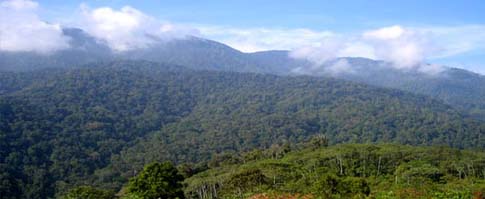Clashing Interests: Geothermal Expansion and Environmental Preservation

Clashing Interests: Geothermal Expansion and Environmental Preservation
I was very interested to learn more about the Indonesian government’s changing of the law, in 2014, regarding geothermal activity as a mining activity, and how they justified doing so to the public (read more about it here: http://www.amcham.or.id/fe/4743-power-play-new-law-could-unleash-indones...). My first reaction when writing about this in my first blog post was that it’s clearly the government’s attempt at an economic grab at the expense of all environmental considerations. However, this interview with the Energy Ministry’s Geothermal Director, conducted by the American Chamber of Commerce in Indonesia, shed light on the rationale behind changing the laws, and mitigation strategies being implemented to minimize environmental damage.
As suspected, the government changed the definition of geothermal activity with the aim of facilitating growth in the sector, which was being hampered by a forestry law prohibiting mining activities from occurring in protected forested areas. The government passed the amendment on the grounds that geothermal activity doesn’t cause the same environmental damage as mining. As a result of this changed law, considerable opposition from conservation groups and NGOs has appeared. When asked about the environmental consequences of geothermal activity, the Director emphasized the benefits of geothermal energy, stating it produces less carbon compared to fossil fuels. Through his rhetoric, he also clearly wished to dissociate geothermal activity from mining activity, by pointing out the differences. He explained there’s no open pit, sound and good surveys will ensure minimal deforestation, and all drilling areas will be supervised by the environment ministry. He also added that for every tree which is cut down, three more will be planted in its place.
What this article highlighted to me is the ironic reality of the situation, whereby in order to do something which will be advantageous for the global environment, namely increasing geothermal energy activity to replace a dependence on coal, environmental sacrifices on the home-front are having to be made. There are arguments for both sides; the government sees the economic and political advantages of reducing barriers to developing the geothermal sector, and are prepared to sacrifice aspects of Indonesia’s local environment to work towards a healthier global environment. At the same time, conservationists are upset that emphasis has been placed on mining in protected forested areas, instead of exploring viable options outside of these regions.
It’s a tough position to be in, and one which is representative of the competing interests implicit in challenges associated with the process of modernization.